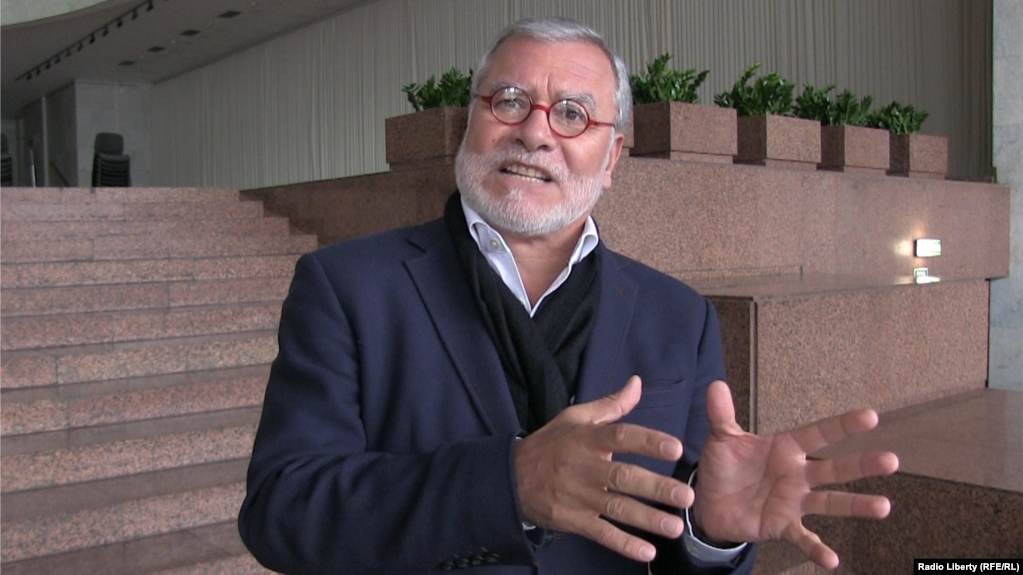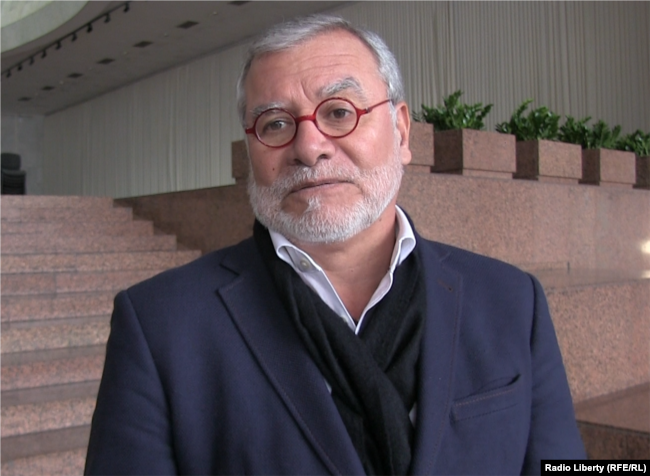

The previous Ukrainian government created a complete anti-corruption infrastructure, but got cold feet about implementing it. The new government has announced its fight against corruption; however, the independence of anti-corruption bodies is at risk. José Ugaz, the former Chair of Transparency International and current member of TI Ukraine’s Board, spoke on these and other problems and risks in the interview for Radio Liberty.
José Ugaz is one of the ideologists of the anti-corruption reform in Ukraine. He became famous for putting the president that had appointed him behind bars when he worked as the ad-hoc attorney in Peru. Radio Liberty talked to José Ugaz at the beginning of November, when he came to Ukraine for a series of events on the occasion of TI Ukraine’s 5-year anniversary since its accreditation in Ukraine, with the support of the European Commission.
The last time Ugaz was interviewed by Radio Liberty was in 2016. Some of the advice he had given to the previous Ukrainian government is yet to be followed, in particular the part concerning Yanykovych’s case.
Mr. Ugaz, I am aware that for the last several years you have been following the situation in Ukraine, its fight against corruption in particular. What do you think are Ukraine’s greatest achievements in this field, starting from the Revolution of Dignity? And what has not been done?
In my opinion, Ukraine has two achievements since the Revolution of Dignity, the first one being that corruption is at the top of the agenda, at least in public discourse. The second one is that there have been obvious efforts made to develop the anti-corruption infrastructure.
There is the NABU, Prosecutor General’s Office, the SAPO, the ARMA, and other institutions that fight money laundering, etc.
And I believe that the success of these institutions is the future goal. Currently, Ukraine has a complete infrastructure, has the appointed judges of the High Anti-Corruption Court. Real results are expected. The main challenge for now is how this infrastructure will be showing real results in the future.
So, Ukraine has a complete anti-corruption infrastructure. What do we need to make it work?
The first indispensable element is political will. Ukraine has its new government; the new president is talking about the challenge of fighting corruption, makes certain decisions. And we hope for the consistency of these efforts. Therefore, political will is the key element.
The rest are the already existing methods. There is a need for institutions with technical capabilities and necessary resources to fight corruption; Ukraine has everything. There is also a need for non-governmental organizations to support these efforts by creating the pressure which would ensure irreversible results.
What are your impressions of the previous meeting with Yurii Lutsenko, the former Prosecutor General? Do you plan on meeting Ruslan Riaboshapka, the new Prosecutor General, and Volodymyr Zelenskyy, the new President, and what do you expect from this meeting?
When I had an opportunity to talk to the former Prosecutor General, I emphasized that the officials did not prove they were able to get to persecution of certain cases of corruption.
I remember we talked about Yanukovych’s case. And the former Prosecutor General was not able to answer why there were no results in the context of anti-corruption investigations and no proceedings against Viktor Yanukovych.
Back then I said that Petro Poroshenko showed quite a start by introducing a series of institutions to fight corruption. But he failed their implementation and did not demonstrate any political will for them to start working. Now, we hope that the new administration in Ukraine will fulfill a part of its promises in this direction.
The representatives of anti-corruption structures are claiming that they are working, that there is political will, and that results are going to happen. If it happens, we will see. I hope that during the meeting with the new Prosecutor General we will exchange ideas on how to fight corruption. There is no meeting with the new President planned.
How can we motivate criminal investigators and prosecutors to work under serious pressure?
The key condition is independent officials, and Ukraine needs them to fight corruption at the highest level. First and foremost, the motivation depends on the mission of anti-corruption institutions and personal characteristics of those who are involved in the process. You can work under pressure even at risk of personal prosecutions, even in the conditions of insufficient security, if you have a distinct mission, if you are devoted to serving your country and achieving results in the name of future.
Ukraine’s President Volodymyr Zelenskyy, in his talk with US President Donald Trump, admitted that Prosecutor General would be “his inside man.” What do we do if Ruslan Riaboshapka, the Prosecutor General, is dependent on President Zelenskyy, and Zelenskyy, in turn, is dependent on his former business partner Igor Kolomoiskyi?
The thing you are talking about poses a real threat and risk for the adequate and effective anti-corruption efforts and processes. One of the conditions I have already emphasized, which is also a very good word for characterizing anti-corruption fight, is independence.
If you have a Prosecutor General who is really dependent on the president, rest assured that nothing will work; it will be a failure. That is why I hope that the Prosecutor General is going to keep his distance from the president and demonstrate practically that only law matters. Yes, he knows the president, and he is appointed by the president, but he is independent and truly devoted to the fight against corruption. This is the experience we see all around the world. Independence is a prerequisite for achieving real results in the fight against corruption.
FOR REFERENCE:
José Carlos Ugaz is a professor of Criminal law at the Law School of the Pontifical Catholic University of Peru and the chairman of the board of Transparency International (TI). He was elected as member of the Transparency International Board in 2011, and as chair of the board in 2014. Specialized in law, José Ugaz served as Ad-Hoc Attorney of the Republic of Peru in several corruption cases. During Ugaz administration, more than 200 judicial cases were opened against more than 1,500 members of the Fujimori’s network during the investigation of the “Fujimori-Montesinos” case (2000-2002). Under Ugaz’s administration USD 75mln were brought back and USD 205mln abroad were frozen. His work made Peru’s President Alberto Fujimori flee the country together with his associate Vladimiro Montesinos, the head of Peru’s intelligence service. In the end both were convicted and brought to justice. Fujimori was extradited to Peru by the Chilean government in 2007. Ugaz joined the Institutional Integrity Office and the Anti-corruption Department of the World Bank (2004-2006). He has been a representative of the Accountability Department of Wildlife Justice Commission since 2017. He is also the author of the book called ”Caiga quien Caiga”, which features his experience as State Prosecutor General in the notorious “Fujimori-Montesinos” case.
José Ugaz is one of the ideologists of the anti-corruption reform in Ukraine. He is also one of the authors of the concept of High Anti-Corruption Court of Ukraine and its recruitment system.
Yevhen Solonyna, Radio Liberty








